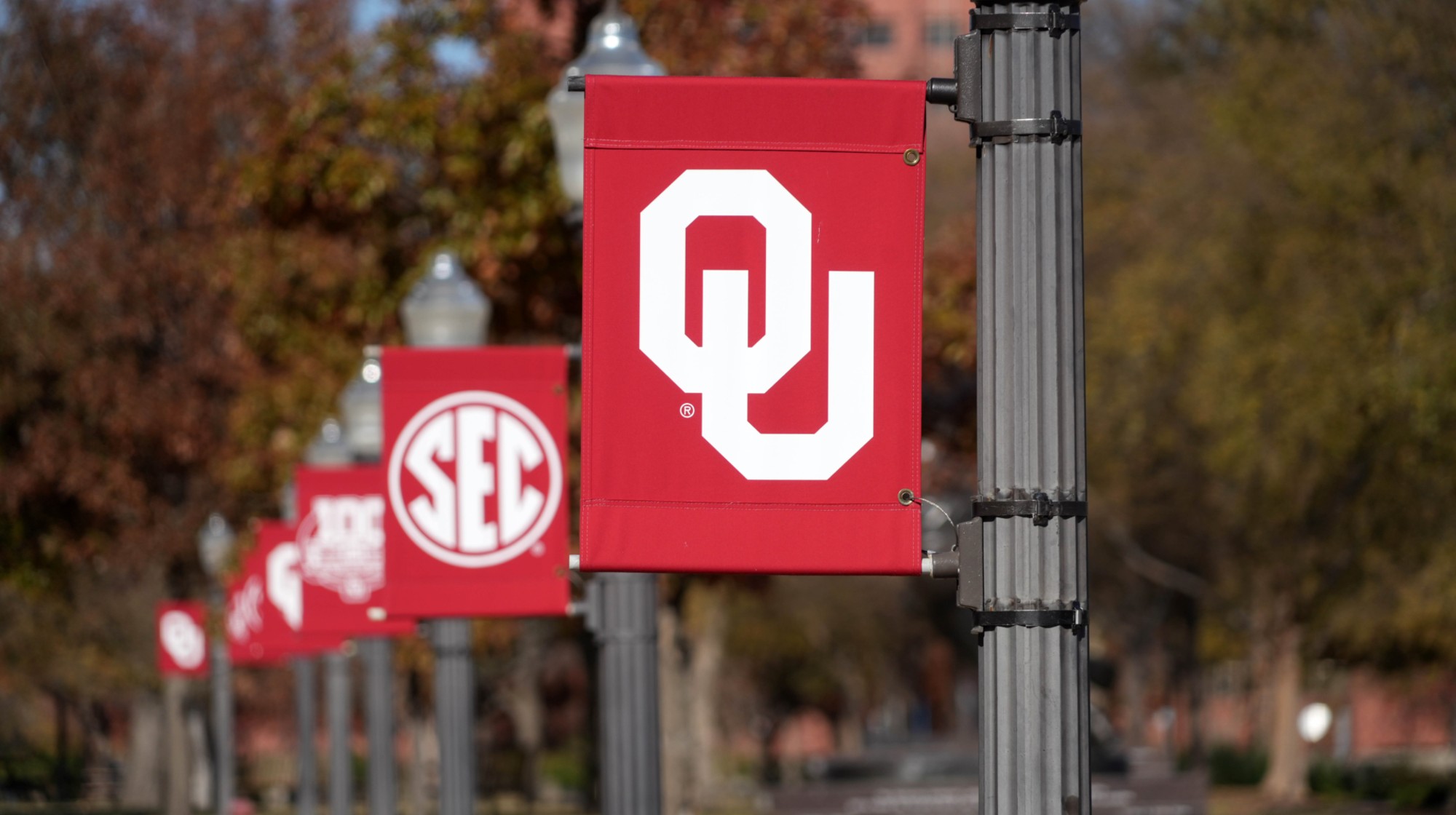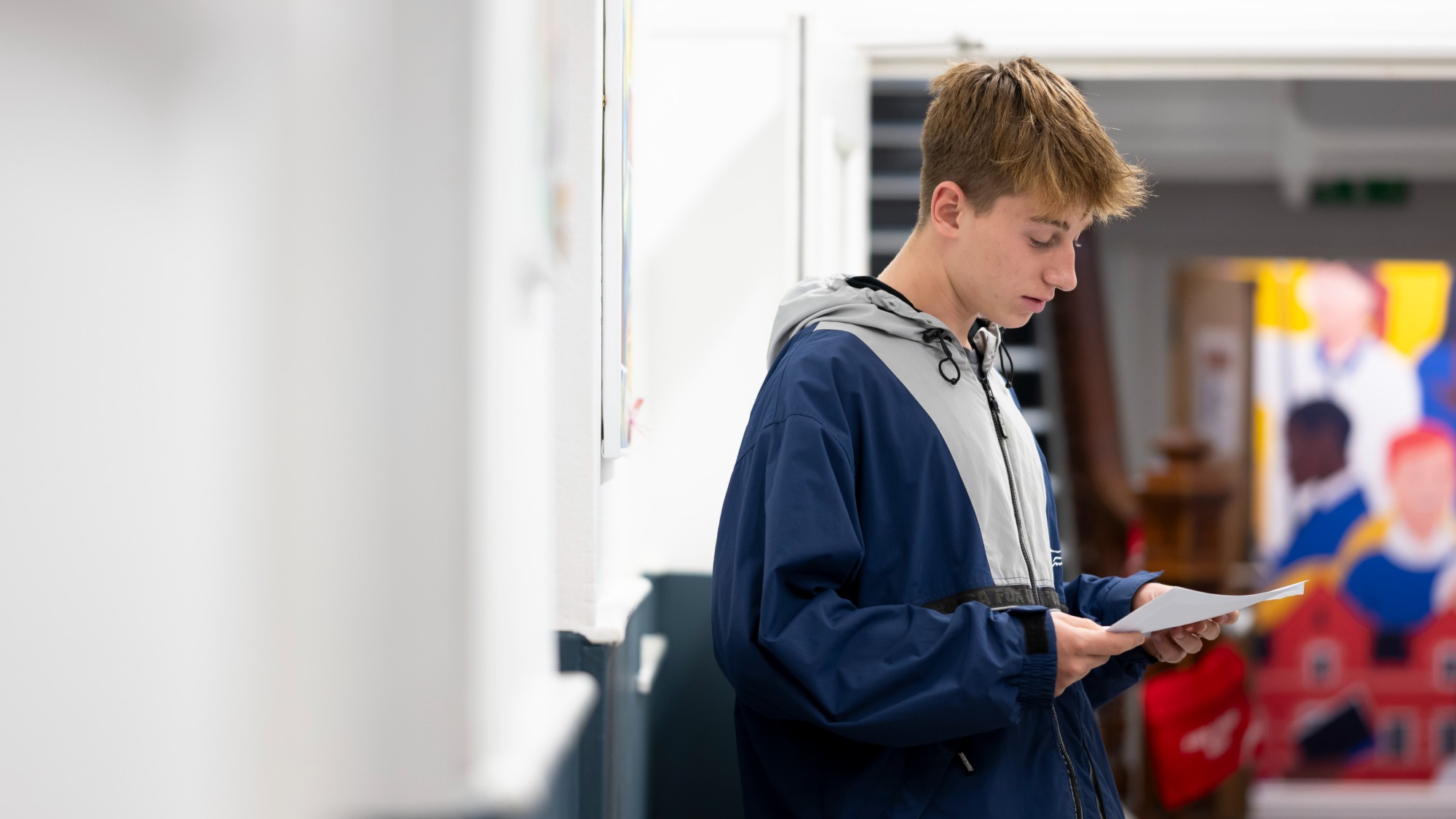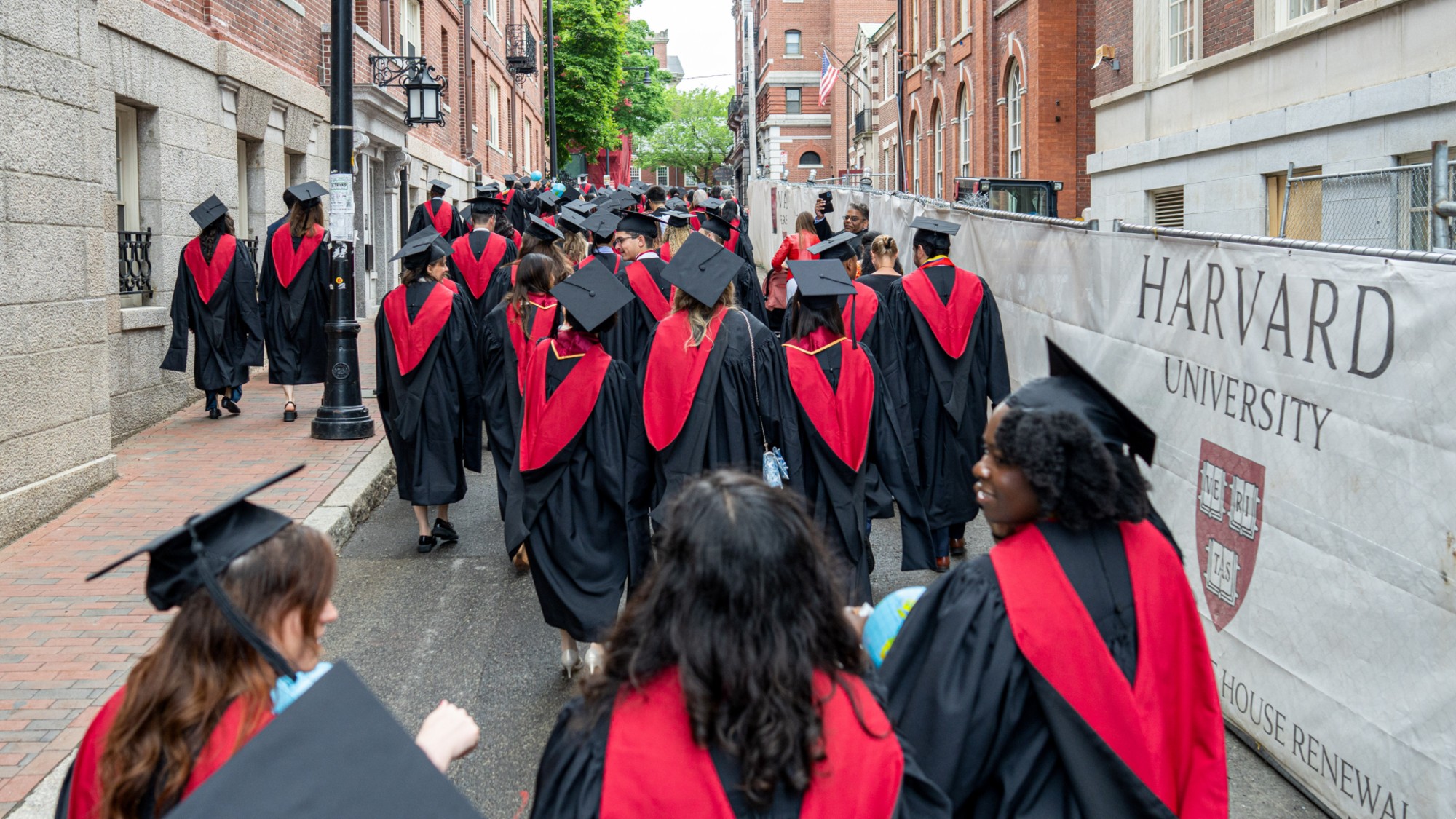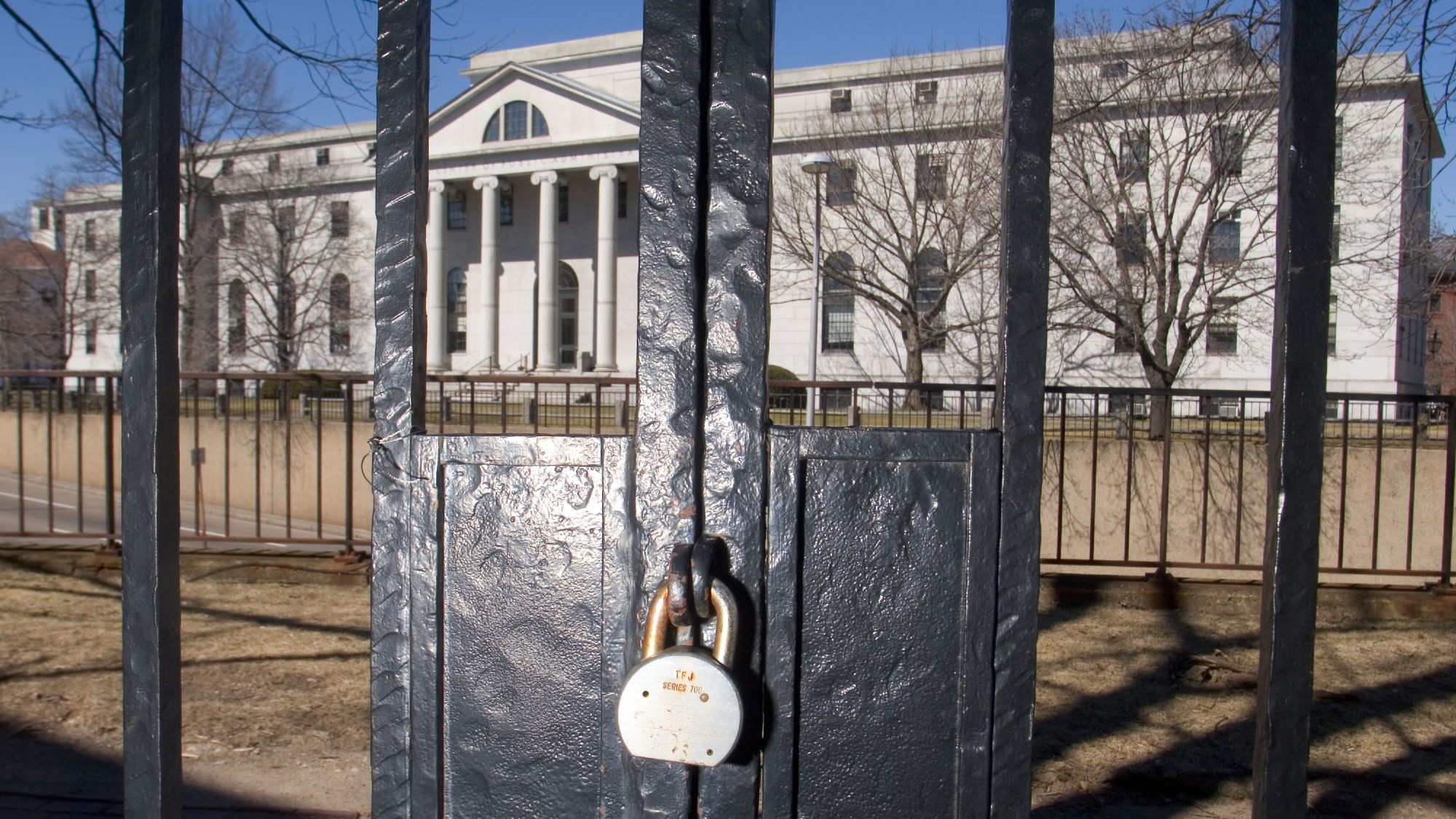Are too many students going to university this year?
Clearing is a 'buyer's market' for those who missed their grades or are looking to 'upgrade'

A free daily email with the biggest news stories of the day – and the best features from TheWeek.com
You are now subscribed
Your newsletter sign-up was successful
More than three-quarters of English 18-year-old applicants have been accepted into their first-choice university as more young people achieved top A level grades than last year.
According to government figures, 32.1% of all English 18-year-olds have been accepted into university, with 75.7% securing a spot at their preferred institution, up from 71.6% in 2023 and 74.5% in 2019.
"University hopefuls trepidatiously opening their official A level emails this morning will on the whole be happier than last year," said Andrew Tettenborn in The Spectator. This year, students are more likely to secure a university place, especially at their first-choice institution, due to two "serendipitous" factors: the fading of the Covid-induced enrolment bubble that left universities overfilled, and a decline in foreign applications.
The Week
Escape your echo chamber. Get the facts behind the news, plus analysis from multiple perspectives.

Sign up for The Week's Free Newsletters
From our morning news briefing to a weekly Good News Newsletter, get the best of The Week delivered directly to your inbox.
From our morning news briefing to a weekly Good News Newsletter, get the best of The Week delivered directly to your inbox.
While this "will certainly please a good many UK teenagers", the question remains, says Tettenborn: "Is it good news for the country and for higher education?"
What did the commentators say?
A sharp drop in international student numbers, coupled with stagnant domestic tuition fees, has left universities facing an "existential crisis", said the i news site. Institutions such as the University of East Anglia (UEA), Kent, York and Sheffield Hallam are among those who have reported experiencing "serious financial challenges".
It means that even students who missed their grades may find clearing to be a "buyer's market" this year, with universities eager to fill available spots. Nick Hillman, director of the Higher Education Policy Institute (HEPI), told i news that "universities are falling over themselves to lock down students into places".
There are notable "downsides" to these efforts to keep university lecture halls full. "Unless you believe the somewhat unconvincing notion that UK school students have been getting steadily smarter, more sophisticated, and better educated each year, quality will decline, and entry standards will fall," said Tettenborn in The Spectator. "This in turn will feed into more demands for remedial teaching and for already demoralised university teachers to spend yet more time instilling the basics into large and sometimes not very interested classes rather than encouraging students to think for themselves."
A free daily email with the biggest news stories of the day – and the best features from TheWeek.com
Today's A level results could also "encourage complacency about the way we approach higher education". Many already argue that the UK's tertiary education system is "too skewed towards universities". Simply put, "this suggests that we have too many university students with skills people don't need, too few apprentices and on-the-job trainees, and (whisper it quietly) possibly too many universities".
"If school leavers had more appealing options, they might take them," said City A.M. "There is something disingenuous about the school-to-university pipeline as it is presented to pupils, and something distinctly un-university-like about many university experiences," where "smoking weed and clubbing" define "too much of many degree-takers' lived experience". While there "may be nothing wrong with either", it "shouldn’t be necessary to pay £9,000 a year to party".
"A radical experiment expanding post-sixth form options could help find a new equilibrium," said the news site. "A skilled workforce is necessary, but a media degree is not." For many students, "a course in coding could be far more useful and cost-effective." What young people need is "more choice outside the university bracket, more guidance in making decisions at 18, and greater honesty about what is required to undertake a bachelor's degree".
Although universities are often praised as "engines of social mobility", said Paul Wiltshire in Times Higher Education, a university education shouldn't be "the de facto method for identifying and rewarding hard-working and academically able young adults from poor backgrounds". On-the-job training and apprenticeships should be recognised as equally effective preparation for employment, as they once were, "before the glut of graduates made employers see non-graduates as the 'dregs'".
But, of course, going to university can be about much more than employability and future earnings. "It is a chance to broaden your horizons, gain independence, meet a range of new people with different backgrounds and views (some of whom may become lifelong friends), throw yourself into a subject you love and immerse yourself in different experiences", said Nicola Woolcock, education editor at The Times.
What next?
With many UK universities facing severe financial challenges, where students choose to go to university could be a "make-or-break point" for several institutions, said The Guardian. David Maguire, vice-chancellor of the University of East Anglia, told the paper last week that "an awful lot of institutions are placing extremely large bets on this recruitment round". But, he added: "I don’t think there are enough students to go around."
Universities UK reported that one in four of its 130 members have recorded a budget deficit for at least two consecutive years, including several Russell Group universities. "That makes this clearing season crucial as institutions under strain chase students," said Sky News.
Sorcha Bradley is a writer at The Week and a regular on “The Week Unwrapped” podcast. She worked at The Week magazine for a year and a half before taking up her current role with the digital team, where she mostly covers UK current affairs and politics. Before joining The Week, Sorcha worked at slow-news start-up Tortoise Media. She has also written for Sky News, The Sunday Times, the London Evening Standard and Grazia magazine, among other publications. She has a master’s in newspaper journalism from City, University of London, where she specialised in political journalism.
-
 Antonia Romeo and Whitehall’s women problem
Antonia Romeo and Whitehall’s women problemThe Explainer Before her appointment as cabinet secretary, commentators said hostile briefings and vetting concerns were evidence of ‘sexist, misogynistic culture’ in No. 10
-
 Local elections 2026: where are they and who is expected to win?
Local elections 2026: where are they and who is expected to win?The Explainer Labour is braced for heavy losses and U-turn on postponing some council elections hasn’t helped the party’s prospects
-
 6 of the world’s most accessible destinations
6 of the world’s most accessible destinationsThe Week Recommends Experience all of Berlin, Singapore and Sydney
-
 American universities are losing ground to their foreign counterparts
American universities are losing ground to their foreign counterpartsThe Explainer While Harvard is still near the top, other colleges have slipped
-
 Oklahoma fires instructor over gender essay grade
Oklahoma fires instructor over gender essay gradeSpeed Read
-
 Education: More Americans say college isn’t worth it
Education: More Americans say college isn’t worth itfeature College is costly and job prospects are vanishing
-
 How will new V level qualifications work?
How will new V level qualifications work?The Explainer Government proposals aim to ‘streamline’ post-GCSE education options
-
 Penn wipes trans swimmer records in deal with Trump
Penn wipes trans swimmer records in deal with Trumpspeed read The University of Pennsylvania will bar transgender students from its women's sports teams and retroactively strip a trans female swimmer of her titles
-
 Where will international students go if not the US?
Where will international students go if not the US?Talking Points China, Canada and the UK are ready to educate the world
-
 Colleges are canceling affinity graduations amid DEI attacks but students are pressing on
Colleges are canceling affinity graduations amid DEI attacks but students are pressing onIn the Spotlight The commencement at Harvard University was in the news, but other colleges are also taking action
-
 Can Trump ban overseas students from US universities?
Can Trump ban overseas students from US universities?Today's Big Question President's decision to revoke Harvard's access to database for admitting international students 'drastically escalates' the dispute